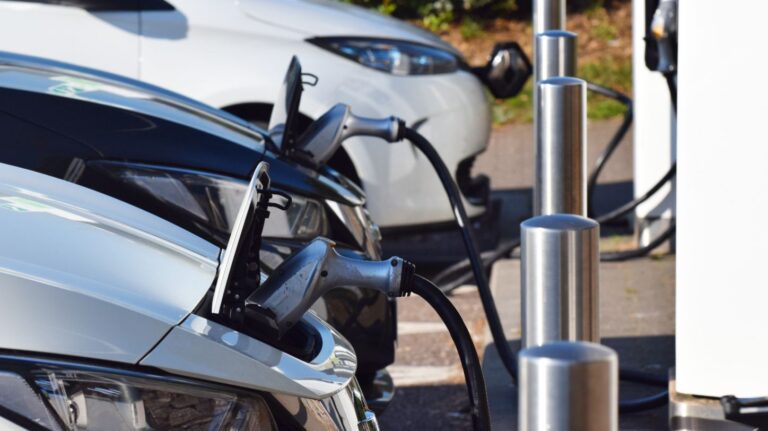The UK government has released updated draft legislation around UK public electric vehicle (EV) chargepoints, which is intended to standardise rules for operators and address ongoing issues with the charging network.
Some of the legislation’s key policies cover issues of contactless payment, payment roaming, pricing transparency, regulation and maintenance, operator reporting and data.
Named the Public Charge Point Regulations 2023, the document has a key focus on how the public is able to pay for charging and the transparency around pricing from operators; this also applies to rapid charge points.
If the legislation becomes a UK Statutory Instrument, operators will need to ensure that members of the public can pay for EV charging with a contactless payment within one year of the law coming into effect.
“Charge points slower than 8kW tend to be based in local on-street settings and are usually used habitually by drivers who are familiar with the payment app,” said a spokesperson for the Department for Transport.
“There is therefore a lower immediate benefit from the additional cost associated with contactless.”
A YouGov survey published in September last year revealed 71% of UK motorists are concerned about the availability of infrastructure to charge EVs, with just under half (45%) also expressing concerns about lack of EV roaming payments.
What’s more, it stipulates that operators of the public charging network will need to ensure the general public are able to pay using a payment roaming provider within two years of the enforcement date.
Payment roaming enables customers to charge on any network, regardless of their own charging service provider, using just one account. The idea behind this is to keep up with growing electric vehicle demand and to ensure a reliable and accessible user experience.
Payment transparency will form a key part of this, with operators being asked to ‘learly displayed in pence per kilowatt hour either on the charge point or through a separate device which does not require a person to have entered into a pre-existing contract with the charge point operator’ and to ensure pricing does not change once a session had begun.
In addition to provisions around payment, the document also outlines that operators introduce the necessary reliability equipment, to ensure that the rapid chargepoint network is ‘reliable for 99% of the time during each calendar year’.
Mike Hawes, chief executive of the Society of Motor Manufacturers and Traders (SMMT), said, “The announced measures to improve the UK’s EV charging experience will give everyone increased confidence in the network, something that is crucial to driving uptake and reducing emissions.
“The regulations’ focus on improving reliability, interoperability and pricing transparency is good news as they reflect the main issues people have when recharging.
“The next step should be enabling contactless credit or debit card payments at public chargers below 8kW, which would benefit drivers who rely on on-street and destination chargers.”
To ensure improved overall network regulation, the legislation also covers reporting standards for operators. It outlines that chargepoint operators must submit a report to the Secretary of State each calendar year, which includes the quantity, reliability and location of all the charging infrastructure in the network, as well the time spent at each charger.
Other key updates include that a free 24-hour chargepoint helpline must be put into operation and that those managing the network must provide accurate data to the Secretary of State and that reference data is available to the public and free of charge.
Reference data can include, but is not limited to: the location of the charge point; the type of connector available; the methods by which a person is able to pay to charge an EV; the price in pence per kilowatt hour to charge an EV; and the hours of the day during which the charge point is unavailable.





